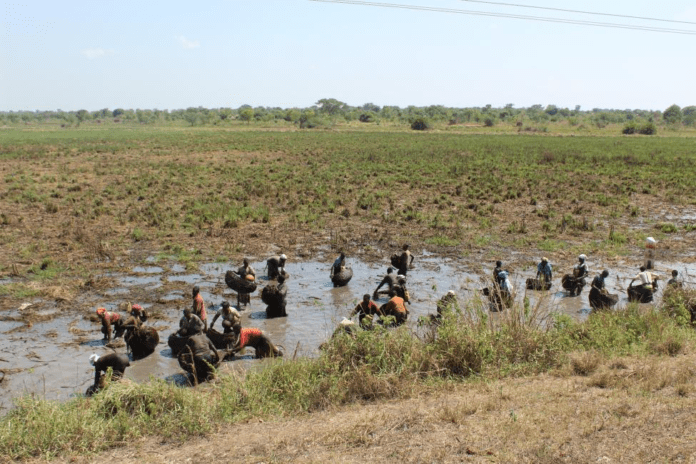A new research report developed by Transparency International Uganda has shown that the idyllic landscapes of Uganda, home to vibrant ecosystems and diverse wildlife, increasingly face a stark reality of potential extinction.
According to Eria Serwajja, a lecturer from Makerere University at the Department of Development Studies, the threat is not solely driven by the global phenomenon of climate change but also by corruption, which is its insidious accomplice within Ugandan borders.
“Political dynamics complicate environmental management as private interests often overshadow ecological sustainability. Corruption among officials further exacerbates the issue, with some ignoring illegal activities for personal gain,” Serwajja said.
He made the remarks during the launch of a research report on climate change politics in Uganda on Friday, October 11, 2024, at Hotel Africana in Kampala.
Additionally, the report showed that Uganda has lost over 30% of its wetlands in the last two decades due to agriculture and industry. Government measures like taxes and permits have failed to stem the trend because farmers argue they have no viable alternatives to wetland farming, perpetuating environmental degradation.
However, Denis Obbo, the Spokesperson of the Ministry of Lands, said that the report needed to be updated, revealing that it does not fully indicate the recent programs founded by the government to ensure environmental protection.
“We have developed an app that any Ugandan can use to verify whether the land is wetland or not. We have done this to ease the verification process, which before needed a person to come to the ministry. Secondly, the ministry cancelled over 800 land titles but also came with some challenges because we have been taken to court for restoration of such titles,” Obbo said.
Sam Peter Echengu, the environmental officer in Soroti District, also said that there is a need for the government to work with different development partners and civil society actors to enhance environmental protection.
He recommended that Civil Society Organizations must enhance awareness about environmental issues and climate change, aligning efforts with anti- corruption initiatives.















